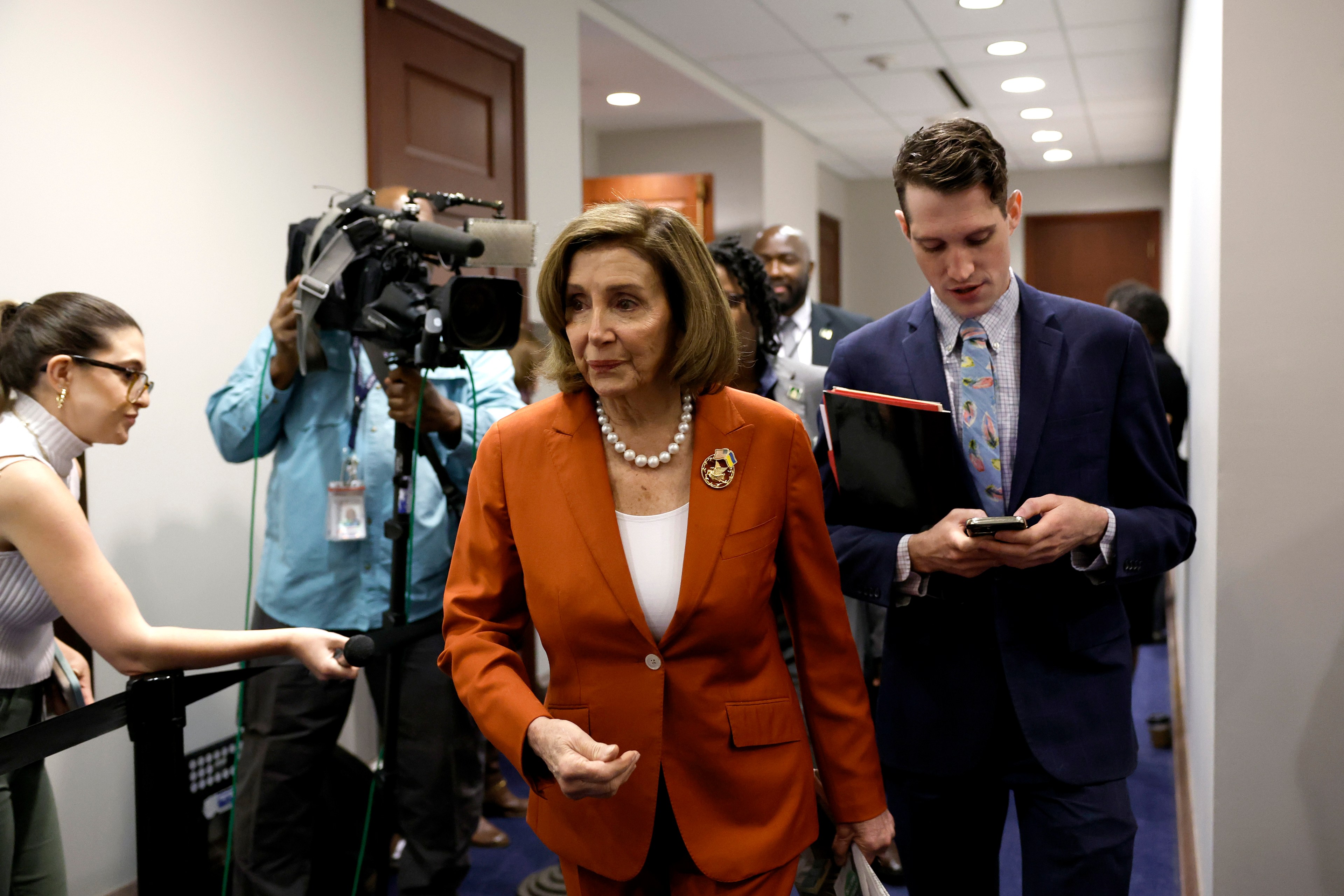Citing “serious safety concerns,” Speaker Emerita Nancy Pelosi and Rep. Kevin Mullin (D-San Mateo) are asking a federal regulator to collect more detailed data on the operations of the autonomous Cruise and Waymo vehicles swarming San Francisco streets.
In a Sept. 19 letter to Ann Carlson, acting director of the National Highway Traffic Safety Administration, Pelosi and Mullin cited incidents in which autonomous vehicles reportedly obstructed emergency responders. The San Francisco Fire Department logged some 50 incidents this year in which autonomous vehicles interfered with emergency responders or obstructed access to fire stations, the letter said. The San Francisco Municipal Transportation Agency has also reported autonomous vehicles obstructing public transit.
In the letter, the legislators urged the federal agency to collect data that could be used to draw conclusions on the “broader safety” of autonomous vehicles, such as information on vehicle retrieval events, emergency response interference and lane blockages. The agency should also ask for information on how vehicles respond to unexpected situations like traffic signal and cell network outages, the letter said.
A spokesperson for Waymo wrote that the company goes “beyond the already robust regulatory reporting requirements” and noted that it had no collisions involving pedestrians or cyclists in its first one million autonomous miles. In a statement, a Cruise spokesperson said that “Cruise follows—and will continue to follow—the reporting requirements set forth by our regulators” and that it reports more on-road data than most other vehicles operating today.
Cruise and Waymo, which collectively operate hundreds of autonomous cars in San Francisco, became a flashpoint of controversy this summer as local officials vehemently protested their continued rollout on city streets.
On Aug. 10, the California Public Utilities Commission voted to allow Cruise and Waymo to operate vehicles 24/7 and to charge passengers for rides. That vote followed strong objections by San Francisco first responders and local policymakers, with San Francisco Fire Department Chief Jeanine Nicholson telling the commission that the vehicles weren’t “ready for prime time.”
Local officials have limited authority over autonomous vehicles, which are predominantly regulated by the California Public Utilities Commission (CPUC) and the Department of Motor Vehicles. The latter agency issues permits for autonomous vehicles but has the authority to suspend permits “when there is an unreasonable risk to public safety,” a spokesperson told The Standard in June. San Francisco’s transit agency can issue parking violations for autonomous vehicles but has no regulatory authority over their operations.
On Aug. 18, the DMV asked Cruise to cut its San Francisco fleet in half following a collision between a fire truck and a Cruise vehicle in which one passenger was injured. The agency said it planned to investigate the incident.
Currently, autonomous vehicle operators are required to report incidents involving a crash to the National Highway Traffic Safety Administration, but “neither CPUC nor any other state or Federal agency has the data it needs to evaluate the safety of AVs overall,” wrote Pelosi and Mullin in the letter.
“We believe AVs will one day provide safe transportation to millions of people and dramatically reduce traffic and pedestrian deaths, both of which are needlessly high,” the legislators wrote. “In the meantime, we need to bring more transparency to this groundbreaking sector.”
In a statement, the National Highway Traffic Safety Administration said it “has received the letter and looks forward to reviewing it.”
Earlier this week, City Attorney David Chiu applied for a rehearing at the state utilities commission, writing that the commission “utilized a flawed approval process and ignored the public safety hazards and potential environmental impacts of AVs.”
